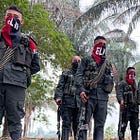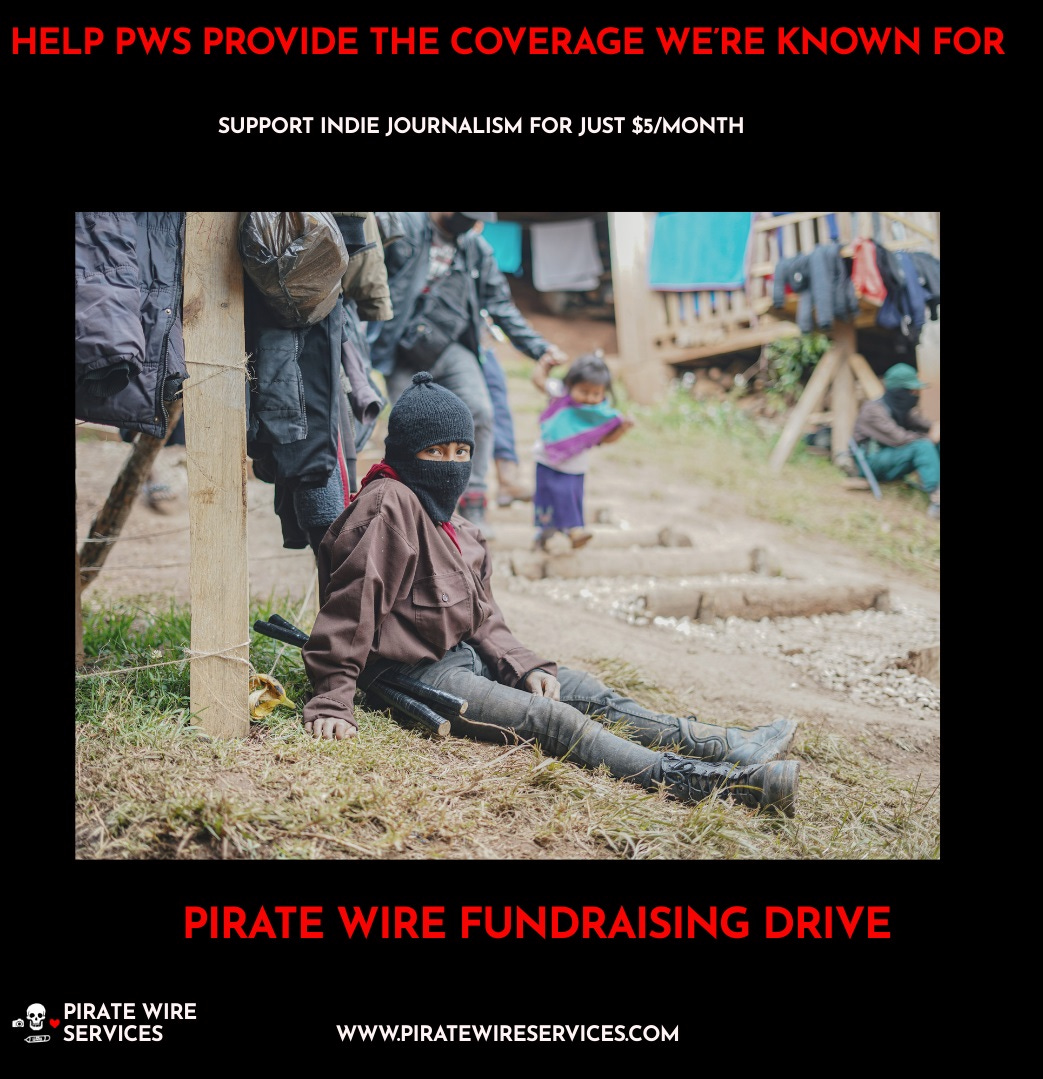FARC dissident group Frente 33, battered by ELN guerrillas, agrees to disarm
The deal faces myriad logistical, security, and legal hurdles in a region currently torn by conflict
This is our “LATAM Wires” daily newsletter, freshly launched. Signing up will get you flash updates on breaking stories and snapshots of development on big headlines. And it’s free! We chose not to automatically enroll the thousands of subscribers from our PWS features newsletter, so if you’re already reading us there, and this interests you, sign up!
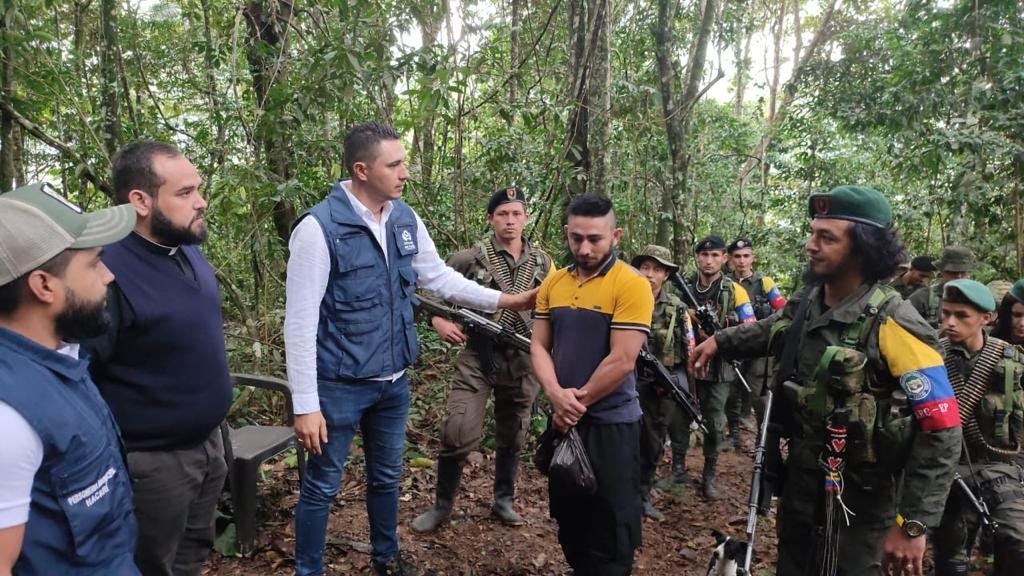
The Colombian government and FARC dissident group Frente 33, of the Estado Mayor de Bloques y Frentes (EMBF) coalition, agreed Saturday to create a “peace zone” in the town of Tibú, in the department of Norte de Santander, to negotiate the disarmament of the group in the conflict-torn region of Catatumbo.
"We have agreed [to create] a peace zone for the cessation of violence between the 33rd front of Estado Mayor and the national government,” announced Colombian president Gustavo Petro in his X account on Saturday. “The fighters and weapons of the 33rd front will congregate there. The peace of Catatumbo begins.”
The deal, which Colombia’s presidential website refers to as the ‘Catatumbo Agreement’ states that “the installation of a Temporary Location Zone (ZUT by its Spanish initials) will be created outside of Tibú” for the purpose of disarmament of fighters.
Frente 33 is part of the Bloque Magdalena Medio ‘Comandante Gentil Duarte’, a subset of EMBF that includes battalions in Antioquia. The EMBF split from Estado Mayor Central (EMC), the largest remaining dissident of FARC forces in the country, last year after EMC declared war on state security forces in the southwest of the country.
The EMBF (which includes Frente 33) remained in negotiations with the government. In January, however, the National Liberation Army (ELN), began a brutal offensive against the group in Catatumbo that precipitated mass displacements and a “State of Emergency” by the national government.
Frente 33 has suffered devastating losses in the war with the ELN in the months since, and the ELN has become the de facto hegemonic power in Catatumbo — the country’s second largest coca producing region which shares a border with Venezuela.
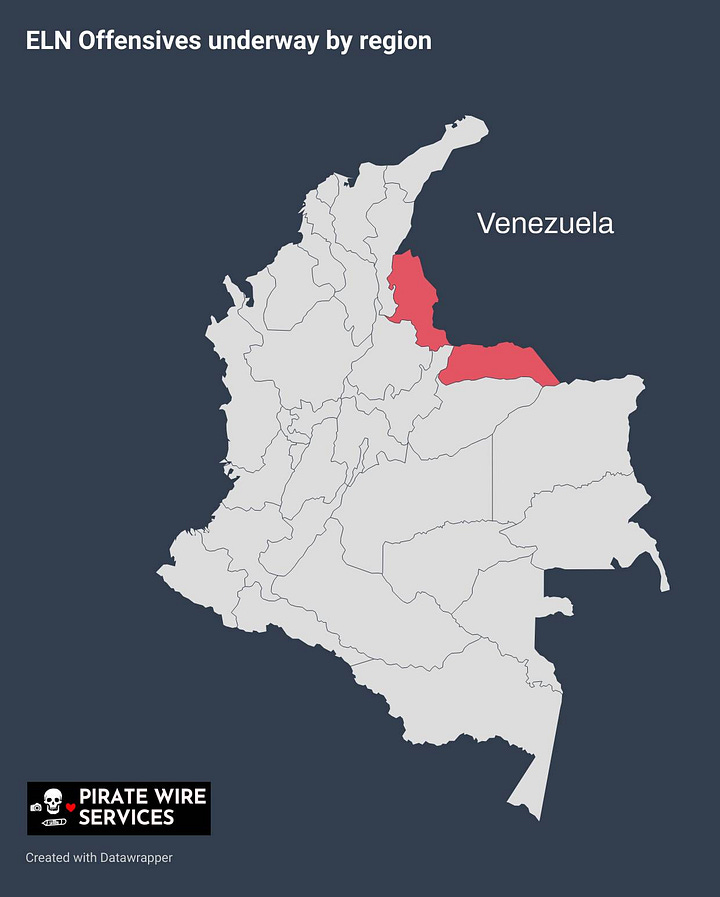
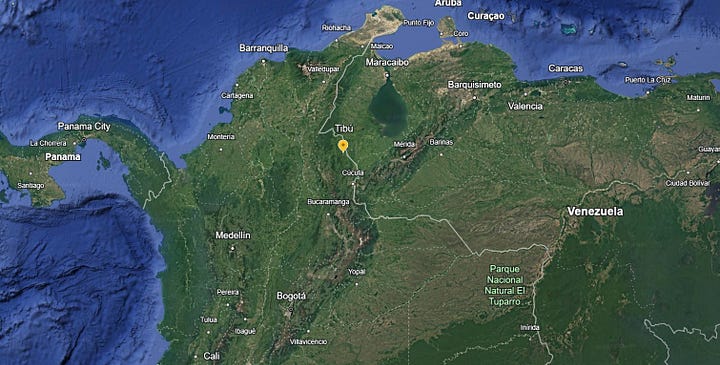
Before creation of the “peace camp”, government and guerrilla representatives “will elaborate the necessary agreements and protocols for the establishment of the ZUT and its operation,” according to the Catatumbo Agreement published by the president.
Once established, the temporary guerrilla settlement will be protected by security forces and host State institutions, which will participate in the territorial transformations agreed in the framework of the Peace Talks Table” with the EMBF, according to government statements.
The negotiations face several logistical and legal hurdles. It is the ELN that effectively controls Catatumbo, not security forces. In January, the ELN briefly took physical control of Tibú, visiting the homes and workplaces of Frente 33 fighters, killing or capturing them.
The mayor of Catatumbo fled the town last year after threats delivered by armed men claiming to represent the ELN, who showed up at his office.
The ELN has also demonstrated its ability to strike at security forces’ infrastructure even in regions of Norte de Santander where military forces maintain control. In January, as part of the offensive against Frente 33, ELN fighters bombed or attacked 3 police stations and one military checkpoint just outside of Cucuta, the departmental capital.

The legality of a deal will also have to be clarified. The government has the legal authority to negotiate a disarmament with Frente 33 fighters, but many of them signed Colombia’s historic peace deal with FARC forces in 2016, in which rebel fighters disarmed en masse.
Many disarmed FARC fighters in Catatumbo, however, re-armed and joined Frente 33, violating their agreements with Colombia’s Peace Court (JEP). Any amnesty of both current crimes and failure to comply with JEP disarmament programs will have to be settled as part of upcoming negotiations.
All of which means that “peace camps” in Tibú won’t happen immediately.
Other “fronts” of EMBF are not mentioned in the deal, presumably meaning they will not be part of any current disarmament processes — though they remain in negotiations with the government.
“Well, they’re negotiating at the point of a gun,” one resident from Catatumbo, who asked that their name be withheld, told PWS. “The ELN liquidated them. They have no operational presence here anymore. Of course they are willing now to seek a way out [with the government]. The other option is to be killed.”
We are currently in a subscription drive! Please consider helping us bring you the independent journalism PWS has become known for! We have plans that start at just $5/month.


